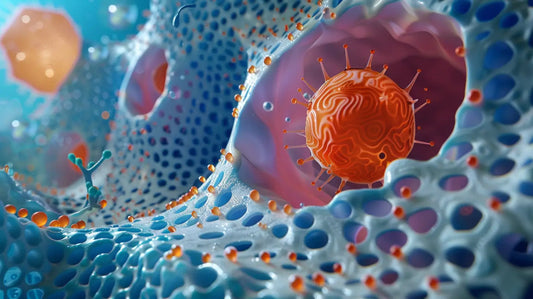Hydrogen Water and Its Effects on Blood Sugar
Updated
Dr. Jainu Ajit PhD
Contributing author

John Smith
Staff Writer
Our Commitment to Accuracy and Objectivity
Ocemida is committed to delivering reliable and unbiased information. Our editorial team, comprised of experienced editors and medical experts, meticulously reviews every article and guide to ensure the content is accurate, up-to-date, and free from bias.
Rigorous Fact-Checking Process
To uphold the highest standards of accuracy, we adhere to the following fact-checking guidelines:
Trusted Sources: We only cite reputable sources, such as peer-reviewed journals, government reports, academic and medical associations, and interviews with credentialed healthcare professionals.
Evidence-Based: All scientific claims and data are supported by at least one credible source. Each article includes a comprehensive bibliography with full citations and links to the original sources.
Internal Linking: While we may include internal links to other relevant Ocemida pages for better navigation, these links are never used as primary sources for scientific information.
Expert Review: A member of our medical and scientific expert team provides a final review of the content and cited sources for all articles and product reviews related to medical and health topics.
By following these rigorous standards, Ocemida strives to provide readers with reliable and informative content.
Share with a friend
Key Takeaways
🔴 Lack of exercise and improper diet are significant contributors to high blood sugar levels.
🔴 Elevated blood glucose leads to oxidative stress, Type 2 diabetes, and metabolic syndrome.
🔴 Hydrogen water, due to its antioxidant properties, helps prevent LDL oxidation, potentially lowering cardiovascular risks.
🔴 Clinical trials show that hydrogen water improves lipid and glucose metabolism and can reduce body mass index (BMI).
🔴 Further studies are required to fully understand how hydrogen water impacts hyperglycemia and related metabolic conditions.
Rising Blood Sugar Levels
Modern lifestyles marked by sedentary habits and increased remote work are major contributing factors to the rise in blood sugar levels. Coupled with poor dietary choices and a lack of physical activity, these factors have led to an increase in hyperglycemia and diabetes diagnoses worldwide. According to the 2021 International Diabetes Federation report, the prevalence of diabetes now affects over 10% of adults globally.The primary lifestyle factors that lead to elevated blood sugar levels include high-carbohydrate diets, physical inactivity, chronic stress, certain medications, hormonal imbalances, and dehydration. Consequently, it's essential to employ dietary and lifestyle modifications to manage blood glucose levels effectively.Hydrogen Water and Its Effects on Blood Sugar
Hydrogen water has garnered considerable attention among health professionals for its potential role in blood sugar management. As its name suggests, hydrogen water is essentially water infused with molecular hydrogen gas. Recent studies from reputable platforms like PubMed support the theory that hydrogen water may assist in maintaining healthy blood glucose levels and mitigating some of the adverse effects of diabetes.
Understanding Hydrogen Water
Hydrogen water is made by dissolving hydrogen gas into water, usually through a specialized hydrogen generator or pre-prepared hydrogen-infused water pouches. Research indicates that molecular hydrogen has notable antioxidant and anti-inflammatory properties, which may benefit individuals facing oxidative stress-related conditions like hyperglycemia.
Glucose Homeostasis
To understand how hydrogen water may help manage blood sugar, it's vital to first grasp the concept of glucose homeostasis, the body's mechanism to maintain stable glucose levels:- After consuming food, carbohydrates are broken down into glucose, which then enters the bloodstream to provide energy.
- The pancreas releases the hormone insulin, which signals cells to absorb glucose and store excess amounts as glycogen.
- When blood glucose levels drop, glycogen is converted back into glucose to restore balance.
- Pre-diabetic: 100 - 125 mg/dL
- Diabetic: Above 125 mg/dL
Hyperglycemia can cause or result from several underlying health problems, including oxidative stress, metabolic syndrome, and Type 2 diabetes.
The Complications of Hyperglycemia
Oxidative Stress: Oxidative stress occurs when free radicals in the body outnumber antioxidants, leading to cellular damage. Elevated glucose levels significantly contribute to oxidative stress via multiple mechanisms, as explored in various studies:- High glucose levels increase mitochondrial respiration, raising the production of superoxide anion radicals (study).
- As a result, advanced glycation end-products (AGEs) form, initiating more oxidative damage and inflammation (research).
Metabolic Syndrome: Metabolic syndrome refers to a collection of conditions often caused by insulin resistance. Individuals suffering from this condition generally have high blood sugar, hypertension, elevated triglyceride levels, and low levels of HDL cholesterol. HDL helps clear excess cholesterol from arteries, reducing the risk of heart disease by minimizing LDL oxidation.Type 2 Diabetes and Insulin Resistance: Type 2 diabetes results when the pancreas either fails to produce enough insulin or when body cells become resistant to insulin's effects. In either case, blood sugar levels rise, leading to various complications such as kidney disease, vision issues, and nerve damage.

Potential Benefits of Hydrogen Water in Hyperglycemia
A growing body of literature suggests that hydrogen water may have a promising role in combating hyperglycemia and associated metabolic disorders. The following studies highlight the benefits:- Mouse Model Research: In a study conducted on obese diabetic mice, the consumption of hydrogen water reduced oxidative stress in the liver and improved fat metabolism. The subjects exhibited improved glucose regulation, decreased plasma glucose and insulin levels, and reduced body weight.
- Clinical Trials on Type 2 Diabetics: In a randomized, double-blind study involving 30 patients with Type 2 diabetes (source), 8 weeks of hydrogen water consumption improved lipid and glucose metabolism. Patients had lower LDL levels and increased levels of the antioxidant superoxide dismutase (SOD).
- Metabolic Syndrome Benefits: In a study focused on individuals with metabolic syndrome, hydrogen water helped improve HDL function by preventing LDL oxidation and promoting cholesterol efflux, potentially reducing heart disease risks.
- Oxidative Stress Reduction: A separate 8-week study (source) demonstrated that individuals consuming hydrogen water showed a 39% increase in antioxidant enzyme levels (SOD) and an 8% increase in HDL cholesterol levels.
- Long-term Impact: In a 24-week randomized controlled trial (reference) on a larger cohort of individuals with metabolic syndrome, hydrogen water was shown to reduce blood cholesterol and glucose while improving antioxidant markers and lowering body mass index.
- Insulin Receptor Expression: Rats that consumed hydrogen water for 14 days exhibited increased expression of insulin receptors, which could enhance insulin sensitivity (study).
- Inhalation Benefits: Research also suggests that hydrogen gas inhalation may mitigate insulin resistance in Type 2 diabetic patients (source).
Gaps in Knowledge
Although the existing research paints a promising picture of hydrogen water's potential, several knowledge gaps and areas for further exploration remain:- Mechanistic Insights: Only a limited number of studies have explored the influence of hydrogen water on gene expression related to metabolism.
- Long-Term Human Studies: Although one study examined 24-week outcomes, most human trials spanned shorter periods. More extended studies are needed to assess hydrogen water's long-term effects on blood sugar management.
- Large-Scale Studies: More extensive clinical trials are necessary to validate existing findings and determine whether personalization of hydrogen water supplementation is required based on individual needs.

Conclusion
While more research is crucial—especially in terms of long-term human interventions—the existing body of studies suggests that hydrogen water could significantly aid in managing elevated blood sugar levels and reducing complications associated with oxidative stress and insulin resistance. For individuals interested in optimizing their metabolic health, investing in a hydrogen water generator may provide notable potential benefits. However, it is essential to consult a healthcare professional before introducing hydrogen water into one's daily routine, particularly for those already managing diabetes or other metabolic disorders.
References
- International Diabetes Federation
- Glucose Homeostasis Study
- Oxidative Stress and Diabetes
- Superoxide Radical Study
- Mouse Model Study on Hydrogen Water and Obesity
- Clinical Trial: Hydrogen Water in Type 2 Diabetics
- Metabolic Syndrome and Hydrogen Water Study
- Randomized Controlled Trial
- Insulin Receptor Expression in Rats
- Hydrogen Inhalation and Insulin Resistance
Table of Contents










































